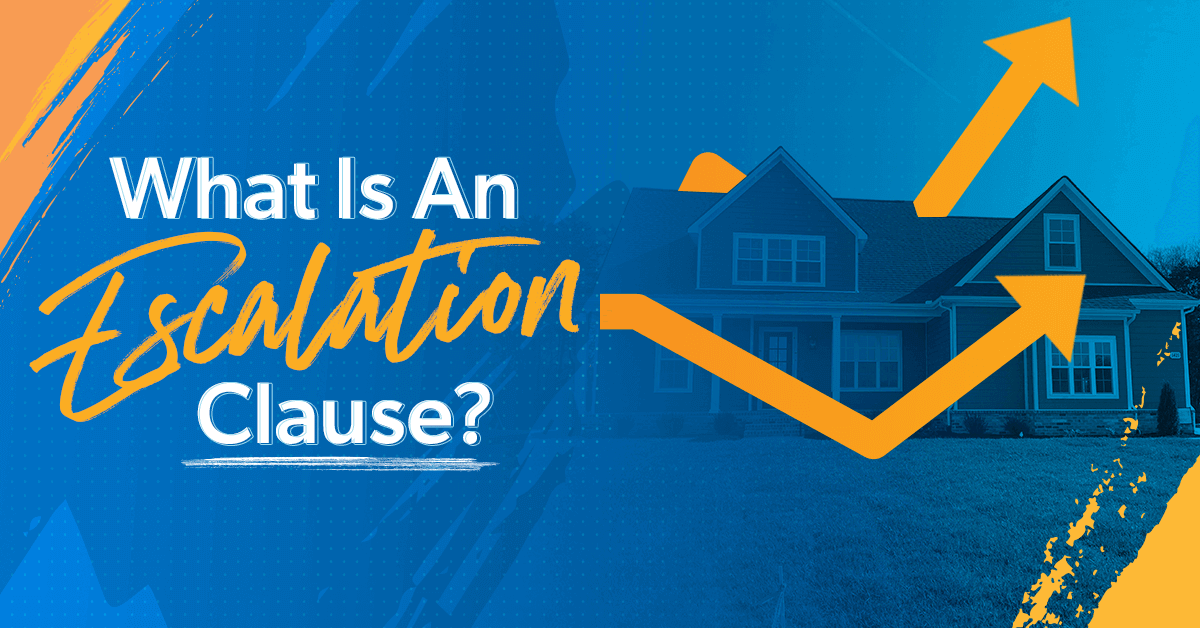
You found a home that checks off all the boxes: big backyard, open floorplan, remodeled kitchen. The next step is to make an offer, but there’s potential for other offers from buyers (you just know that cute couple you saw walking out of the house loved it). What do you do? An escalation clause can make your offer stand out from all the others and help you get the home of your dreams.
What Is a Real Estate Escalation Clause?
Simply put, an escalation clause is a part of a real estate contract that increases your offer price (up to a maximum amount) to beat competing offers. It’s sometimes called an escalator (not to be confused with a moving staircase).
So, is an escalation clause a good idea? Let’s take a closer look.
How Do Escalation Clauses Work?
If your real estate agent is a pro, they should be able to write up an escalation clause for you. An escalation clause has three basic elements:
Bona fide offer price: your initial offer
Find expert agents to help you buy your home.
Maximum amount: the highest price you’re willing to pay (also called a price cap)
Escalating factor—the amount your offer will increase to beat higher offers.
The escalating factor is typically a round amount from $1,000 to $5,000. So, if the highest offer on a house is $350,000 and your factor is $5,000, your offer will automatically increase to $355,000.
Now, you could set your factor at something low like $50, but that won’t make your offer stand out, and you risk ticking off sellers by being a cheapskate. Hey, there’s nothing wrong with trying to get a deal, but when you’re buying a house, your offer should be as strong as possible. You don’t want to lose the house of your dreams over a few hundred dollars.
So, here’s a look at how an escalation clause might work in real life.
How Do You Write an Escalation Clause With a Home Offer?
Let’s say you make a $410,000 offer on a house listed for $400,000. There are other offers on the table, so you include an escalation clause with a cap of $450,000 and a factor of $5,000.
If another buyer’s offer is $425,000, your offer will increase to $430,000.
All right, we know what you’re thinking: What’s to keep the seller’s agent from just saying they got a higher offer to get more money out of you? Well, before your escalating offer escalates, the seller’s agent must provide your agent proof of a bona fide (aka real) competing offer.
So in this scenario, your offer beat the highest offer by $5,000. That likely means you won and got the house!
But hold your horses. We say likely because price isn’t the only thing a seller considers when looking at offers. A seller might accept a lower offer from a buyer who’s willing to waive inspections and repairs or can close quickly with an all-cash offer.
(One quick note here: Don’t ever skip getting a home inspection. A home is the biggest purchase you’ll ever make. You need to make sure it doesn’t have problems that could cost you a ton of cash to repair.)
Assuming all offers have pretty much the same conditions, an escalation clause could help you get the home you want, but it’s not always necessary.
When Should You Use an Escalation Clause?
If you’re shopping for a house in a seller’s market—which means homes are getting multiple offers from buyers—an escalation clause can help you win a bidding war. It can keep you from losing a home just because another buyer offered a little more money than your first offer. It also shows that you’re a serious buyer with a strong offer.
Now, if a house doesn’t have any competing offers, there’s no reason to include an escalation clause in your contract. And in very competitive markets, a seller might only accept “best and final” offers with no escalation clauses allowed. If that’s the case, you have to make your maximum offer and hope for the best.
If a competing offer is higher than your offer, then you’re just out of luck. And then it’s back to searching for homes again (bummer). Don’t lose hope though. The next time around, an escalation clause could help you seal the deal.
Before you consider an escalation clause though, you need to make sure you know how much house you can afford. An escalation clause could tempt you to spend more than you can afford. We recommend you save at least a 5%–10 down payment and that your monthly mortgage payment (including taxes and escrow) is no more than 25% of your take-home pay.
Want More Expert Real Estate Advice?
Sign up for our newsletter! It’s packed with practical tips to help you tackle the housing market and buy or sell your home with confidence—delivered straight to your inbox twice a month!
What Are the Pros and Cons of an Escalation Clause for a Buyer?
When considering an escalation clause, lean into the expertise of your real estate agent. They can guide you through the process of making an offer and help make sure an escalation clause is the best option.
Here are some pros and cons of an escalation clause.
Pros
- An escalation clause keeps you from paying more than you need to get your offer accepted. For instance, if your max offer is $500,000 with a $5,000 factor, but the highest competing offer is $460,000, you’ll only pay $465,000 for the home.
- If you’re worried about losing a home by getting outbid, an escalation clause can give you peace of mind knowing that you made your best offer.
- An escalation clause helps you stick to your budget and not get caught up in a bidding war and make an offer that’s higher than your budget.
Cons
- Since the seller knows your maximum price, they could reject the escalation clause and make a counteroffer for a higher price.
- Once an escalation clause has been accepted, a downside is you can’t bargain or make counteroffers.
- If the house appraises for less than your offer, you might have to pay additional cash to your lender to make up the difference. And if your budget is maxed out and you don’t have the money, your loan could fall through.
How Can a Buyer Beat an Escalating Offer?
The way to beat an offer with an escalation clause is to make an offer that’s higher than the other buyer’s maximum price. The seller’s agent is not allowed to reveal the max price, so you’ll just have to make your best offer and hope it’s high enough. Don’t be tempted to offer more than you can afford!
Sometimes, if you make an offer on a home that has multiple offers (including escalation clauses), the seller could reject the escalation clauses and simply ask everyone to make their best and final offer. Once all the offers are in, you’ll just have to keep your fingers crossed and hope the seller accepts your offer.
Work With a Real Estate Pro
When it comes to an escalation clause, things can get pretty complicated. That’s why you need a RamseyTrusted® real estate pro in your corner who can help you navigate making offers and signing contracts. The agents in our network are vetted by our team to make sure they’ll help you focus on getting the most bang for your buck.
Did you find this article helpful? Share it!

We Hear You!
We’re considering adding the ability to save articles to your Ramsey account.




